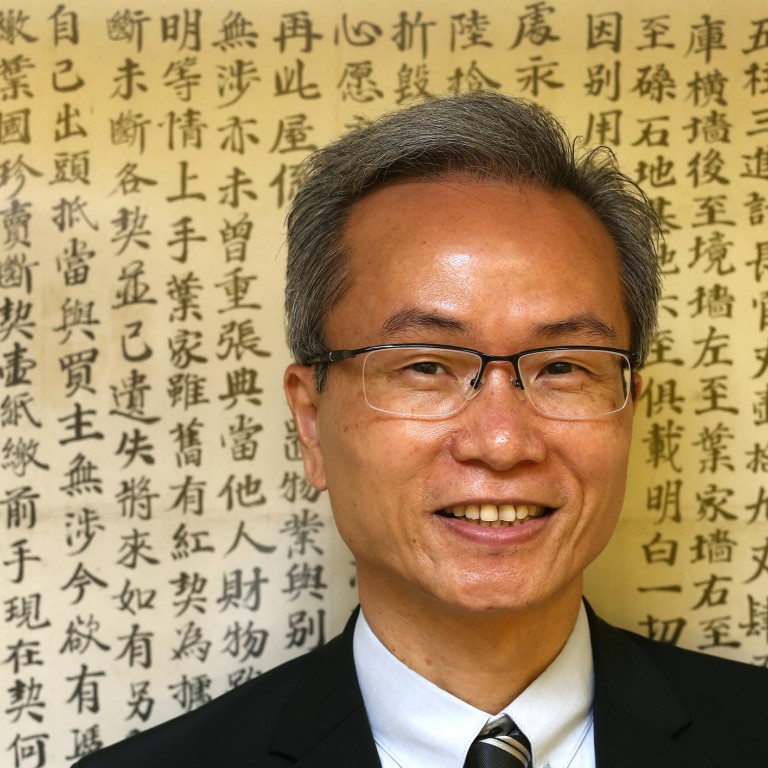
Hong Kong chapter of China Real Estate Chamber of Commerce enters new growth phase
The China Real Estate Chamber of Commerce has grown rapidly in the city. Besides promoting the business interests of members, it also wants to be more influential in property-related issues
Thirteen years after it was formed, things are looking up at the Hong Kong chapter of the mainland's largest non-profit real estate association, the China Real Estate Chamber of Commerce. Its membership has grown rapidly over the past two years to 288, up from only 50 when it was formed in 2002. Founding chairman Ivan Ko Kwong-woon said the recent expansion was backed by the growth of the mainland economy, the rapid development of the country's real estate market and the close relationship between the Hong Kong chapter and the Beijing-based chamber. In view of the growth of the mainland market, Ko wants to take the association to a new level.
The Hong Kong chapter was established in 2002, one year after the chamber was formed in Beijing. The chamber is a non-profit, non-government organisation representing the real estate industry. It has about 5,000 members including major developers such as Dalian Wanda Group, Poly Real Estate and Soho China.
The founder, Nei Meisheng, is a friend. When I established the Hong Kong branch, it was the first for the chamber. Now, it has 28 branches across the mainland.
When the Hong Kong chapter started, it had about 50 members. As it was extremely inactive after my first term of two years, the membership dropped to about 25 in 2012. Membership has been rising since I became chairman again (in September 2012).
Our members are diversified, with corporates and individuals. Corporate members include developers, real estate funds and professionals. We also have members from overseas.
Our priority is to promote the business interests of members and create opportunities for them. We do not only serve the [property] sector, but also care about society and social issues such as quality of living and public space in Hong Kong.
When the Hong Kong chapter was founded, we mainly served foreign capital going into the mainland. At the time, Hong Kong's real estate market was bigger than the mainland's. The mainland market is now huge and attractive. Meanwhile, mainland Chinese have been increasing their investments overseas. All these create business opportunities.
Members are definitely attracted to the close relationship between the Hong Kong chapter and the main organisation. The headquarters does not give us instructions and we do not have to report to them - the best example of the application of "one country, two systems".
Mainland enterprises and capital are just like airplanes and they use Hong Kong to take off for other destinations. Hong Kong is the best runway for mainland capital and enterprises to go overseas while our chapter wants to be the best runway for the mainland's real estate industry to go global.
Members in Hong Kong meet frequently, with weekly or monthly gatherings, where members communicate, know each other and share views. We encourage sharing [of resources] . You gain more from sharing. For example, we have two members who first met at an association gathering. They shared their views, the markets and their projects. Eventually, they clinched a deal, which was considered the best for both parties that year.
We lobbied the Urban Renewal Authority to revise the rule on local development experience as a criterion for bidding URA projects. In our opinion, global experience should also be considered. After discussions with the authority, they changed the restriction. Bidders with development experience outside Hong Kong are now accepted.
We are active but not influential enough. We need to strengthen our research division and conduct more influential studies on property-related issues.
My company, Recas Global, recently signed a memorandum of understanding with China Railway to develop a resort in Tahiti, French Polynesia. We will do the site formation and then sell to investors. The whole project with spa hotels, bungalow hotels and other facilities such as water parks, will take eight years to complete.

